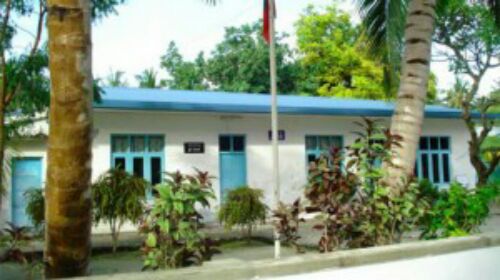As last week’s NGO conference came to close, the award ceremony – with Minister of Defence Mohamed Nazim acting as chief guest – suggested strained relations between government and civil society.
Of the 22 organisations taking part in the conference organised by the Human Rights Commission of the Maldives – 12 from Malé and 10 from the atolls – not all stepped up to receive certificates from the minister.
“I believe there are more relevant figures to be the chief guest at an NGO conference the country’s defense minister,” explained one NGO representative who boycotted the ceremony.
The main aim of the conference, in addition to providing networking opportunities, was to create a forum in which the participants could share the scope of the work done by the NGOs as well as discussing greater issues faced by civil society.
NGOs involved suggest that many of those issues involved the government’s lack of effective engagement, perhaps typified by the recent decision of the immigration department – headed by minister Nazim – to introduce exit permits for migrant workers.
The controversial scheme was reversed less than two weeks after being introduced after complaints from NGOs, who had not been consulted adequately prior to its introduction.
Groups present at the conference listed migrant workers rights as one of their main areas of interest, alongside health rights, children’s rights, women’s rights, and disability rights.
Lack of support
Discussing concerns raised during the conference, Maldivian Democracy Network’s (MDN) Shahinda identified the government’s lack of financial support for NGOs as the most pressing issue facing civil society.
“For several years, the government has allotted financial support for NGOs in the state budget. However, we have never seen the support being fully realizsed even though it is stated in the budget,” said Shahinda.
HRCM Vice President Ahmed Tholal noted that, although financial support for NGOs is included in the state budget, a lot of the expenditure is spent on sports association rather than NGOs working for human rights.
“Given the lack of state financial support, NGOs often have to resort to individuals and donors,” continued Tholal. “The current public perception is that if an NGO has a donor, then it must be one sided or politically motivated. This is not true in most cases.”
A general lack of perception or an understanding of the work civil society is doing was another key issue raised during the three-day conference.
While speaking at the closing ceremony, one participant representing Muraidhoo Ekuveringe Jamiyya from Haa Alif Muraidhoo, said there was little appreciation of work done by NGOs from either the public or from government institutions.
Chairperson for the Maldives Association of Physical Disabilities, Ahmed Mohamed, commented that the general public remains unaware of disability rights.
“I think it is the duty of the government to increase awareness or work on empowering NGOs so that we can increase our outreach in spreading awareness,” said Ahmed.
MDN also suggested that the poor public appreciation of civil society and the lack of acknowledgement of NGO could be traced back to a lack of engagement from the government.
“Every year, our annual reports are sent to the home ministry which just files it. The reports detail what we do, our achievements and other relevant information. All of this is not acknowledged by the state so the general public is unaware of the work we do,” complained Shahinda.
Tholal also stressed the importance of state acknowledgment of NGO work, suggesting that public perception is shaped by the state’s response to work done by NGOs.
“NGOs are institutionalised and organised voices of the public. Government institutions have to respect statements and reports from NGOs whether they agree or disagree with the political ideology of the government,” noted Tholal.
Shahinda added that the public sometimes has unrealistic expectations of NGOs, saying that organisations do not have the capacity to deal with every single issue.
An intimidating future?
HRCM Vice President Tholal stressed that NGOs role as human rights defenders was being jeopardised as there was insufficient space and capacity to operate effectively and independently.
NGOs at the conference voiced concern over the prevalence of threats and measures made by the state to intimidate and silence civil society and other independent institutions.
“There have been numerous threats and attacks on civil society organisations and individuals. Government has done little to no work to address these threats,” said Shahinda.
Most recently, Supreme Court initiated a ‘suo moto’ proceeding against the HRCM for its Universal Periodic Review (UPR) submission made to the UN, while denouncing the HRCM’s suggestions that the judiciary was controlled and influenced by the Supreme Court.
A similar proceeding – in which the court acts as both plaintiff and judge – was used in the ousting and prosecution of Elections Commission President Fuwad Thowfeek and Vice President Ahmed Fayaz in February.
In October 2013, the home ministry launched an investigation into comments made by Transparency Maldives and the Tourism Employees Association of the Maldives (TEAM), saying that it would not allow any organisation to challenge the law.
Staff at anti-corruption NGO Transparency Maldives have also been subject to death threats as well as one employee being physically assaulted during the recent Majlis elections.
Asked about the future of the civil society in the Maldives, Tholal reiterated the importance of state acknowledgement in order to improve the current atmosphere.
“I believe that the civil society is the most important voice in raising issues against the state in making it more responsible,” said Tholal.
While things may get difficult, Shahinda expressed confidence that important work carried out by civil society groups would continue.
“If things do not change, it is going to be more and more challenging. However, I am sure these challenges alone will not hinder the work of the civil society”.

